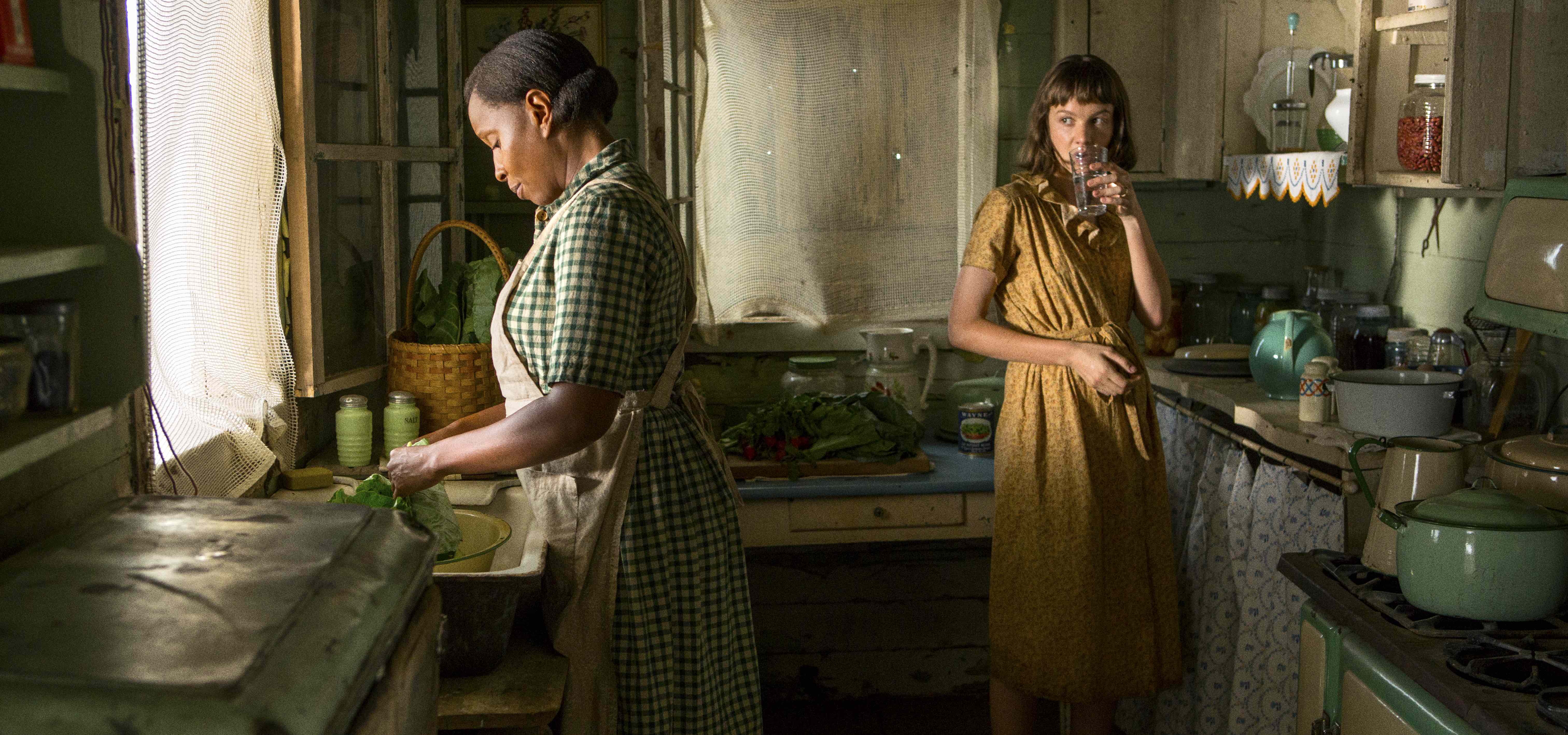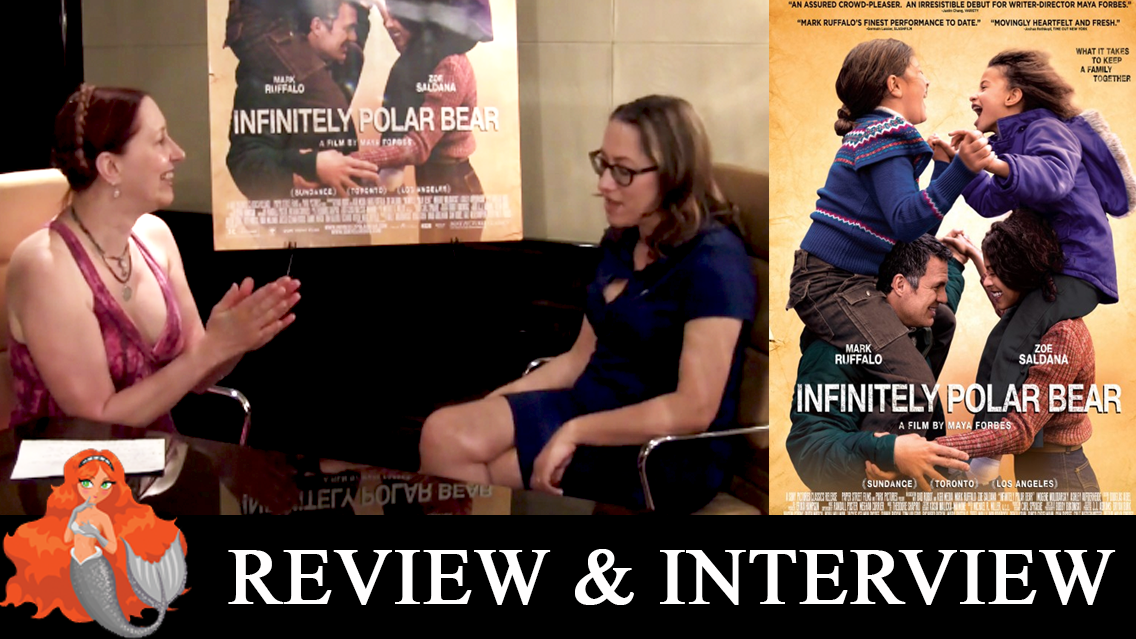
The Miseducation of Cameron Post, a film based on the 2012 novel of the same name by Emily Danforth, is directed and co-written by queer American-Iranian filmmaker Desiree Akhavan. This Sundance Grand Jury Prize-winning indie tells a story that takes place in 1993 chronicling the misadventures of Cameron (Chloe Grace Moretz), a teen placed in a gay conversion camp called “God’s Promise” by her born-again Christian extended family, with the hopes of curing her of SSA, or “same sex attraction”.
Cameron is caught getting hot and heavy in the back seat of a car with her first love and prom queen Coley Taylor (Quinn Shepard) and gets whisked away to a camp. There she and fellow campers are guided by therapist Dr. Lydia March (Jennifer Ehle) and advised by her brother, Reverend Rick (John Gallagher Jr), who believes he’s been cured of the sin of same sex attraction. Cameron finds like-minds in fellow campers, or inmates depending on the perspective. Jane Fonda (Sasha Lane) and Adam (Forrest Goodluck) are just playing the game of getting through the experience so they can continue with their lives. She starts sneaking into the woods to smoke joints and figure out ways to seem believably changed and contrite for what none of them believe is wrong. It’s like she’s found her soulmates.
What makes The Miseducation of Cameron Post, or TMOCP, so powerful? They found the perfect actress to play the lead with Chloe Grace Moretz. At only 20 she is a veteran of the film industry, and Akhavan was lucky Moretz was actively looking for work with deeper meaning and more social resonance. The actress has a genius for conveying emotion without speech, and Cameron as a character is an observer, and considers her place, though she knows she isn’t sinful, in a world where being gay is often seen as wrong. Akhavan said she had almost given up the project for fear of never finding their Cameron, until one day she got a Post-It that said “Cameron wants to meet”. She now has the Post-It framed on her wall.
The co-stars are all beautifully cast, so much so that the film really feels like an ensemble piece. Even those who don’t have as much screen time, like Ehle as the staunch Christian who believes she is doing god’s work realigning these kids to their Christian path, make an indelible mark on the story’s authenticity. Gallagher’s Reverend Rick has more interaction with his charges shown on film, and his is a heartbreaking portrayal of vacillating commitment and confusion. As Jane and Adam, Lane and Goodluck allow the audience to lean into the relief of found tribe, which is an aspect of the story that lifts an otherwise dark story with moments of sweetness and shared teen struggle reminiscent of 80s era John Hughes.
I spoke to both Chloe Grace Moretz and Desiree Akhavan about found tribe, their own experience of it, and how it influenced their experience of making The Miseducation of Cameron Post.
Said Akhavan, “It was always one of the main stories of the film, but I also think it’s heightened in the queer community. I also felt that it’s in every teen film. You find your allies, and that’s one of the best things about getting older. You start to speak the same language with people. You stop trying to imitate, It happens at different ages for everyone. For me, it didn’t happen until I was 21. You stop regurgitating what you see around you, and you start imitating what you aspire to be. I discovered it for myself when I met Cecilia, the co-writer and producer of this film. We met at around 20 or 21, and we just spoke the same language. There was no effort. She believed in me, and I believed in her. We enabled each other to make our first films, first shorts, first features, and now TMOCP. It was just…someone sees me, and I know she felt the same way about seeing her. It was just the best…I mean, I wouldn’t be making movies if it weren’t for her. I wouldn’t be anything. Like, she’s my life partner, not romantically, but as a creator. She enables me and I enable her. Meeting her completely changed my life. I moved to London to be close to her and write this film. Her belief in me gave me belief in myself.
Her telling me, you know this is really early on and before I came out to my family. She drowned out the crazy in my head. She drowned out the voices that were like, “You should hang yourself!” And she was like, “No! You’re cool! It’s really cool that you’re queer! It’s really cool that you’re this thing that you have a lot of shame about. It’s so cool that you’re Iranian, tell me about your culture. Talk about where you’re from.” And so now I write to make her laugh. And that relationship is the thing that enabled and allowed my adult life to begin. That was one of the things that, when we were writing this, was so important to us.”
Moretz had her own experience with found tribe, which was in part informed by having two of her four brothers come out as gay. “I think I was really lucky that the family I grew up in was really wonderful, but that changed. You are born with people that are supposed to be your family. And, you either choose to grow up into adults who are also friends, or you just stay family members who only see each other at functions. I remember there was a massive choice that happened, and it came through honesty. You know, there’s a lot of things you hide from your siblings, there was a big turning point, when I was 19, where I came clean with a lot of things in my life to my family. And through that and through my mother, I think when my father left when I was 13, things kind of compacted themselves and everyone became real quiet. You just don’t want to add fuel to a fire, and you kinda separate a little bit. There was a big shift when I was like, “I can’t do it anymore. I gotta talk to everyone. I gotta talk. We’re not talking, we’re just existing around each other.” And we chose to be honest with each other, and through that, we chose to be a tribe, we chose to be friends. And they’re my best friends that I choose above anyone that I know. Like, the first people I want to go to dinner with, or go to a concert, or something simple, or just call when something happens, is them. Not just because we were born together, but because we choose to be there for each other at another level.”
One of the frightening aspects of the film is the truthful way it portrays gay conversion. There are only 12 states in the US that have outlawed therapy for what is called “same sex attraction”, a therapy which denies biology, research, and to this day uses techniques that leverage shame, guilt, and fear to warp the minds of LGBTQIA kids and adults. The statistics are terrifying, especially as they relate to the longterm damage done to those who have gone through it. Both depression and even suicide are common by-products. Mathew Shurka, of #BornPerfect, the National Center for Lesbian Rights Campaign to end conversion therapy, was subjected to gay conversion therapy before he started working to end it. When I asked him one of the tactics he most remembers that he saw reflected in the film, he said, “Lydia’s character says, “Would you give a drug addict a parade?” And I remember specifically in conversion therapy how we were taught the ridiculousness of us celebrating pride. I had never celebrated pride, yet, I went into conversion therapy at 16, so I hadn’t had a pride celebration event yet. But, you know, I can’t avoid it. I’d hear about pride celebrations, I hear about gay people in pop culture. This was in 2004 at the time, so it wasn’t as visible as it is today. They would come up in conversation with the therapist, and it was always talked about as, “You’re basically not well and you’re celebrating that and you’re fighting for the rights it. It’s like their comparison was sick people were fighting for the right to be sick.” And it’s like, “Do you want to be a part of that or do you want to live,” what they called, “a healthy life? To have healthy relationships in a healthy life.” And at 16, of course I want to live a healthy life.
The best aspect of The Miseducation of Cameron Post, is the balance director Akhavan finds between telling what is essentially a horror story of mistreatment and manipulation, and a charming, hopeful tale of coming of age. Audiences will see these kids embracing like-minded people as a support and a safe place from which to approach their futures. If anyone needs another answer as to why we need more diverse voices making films, here it is.
A



